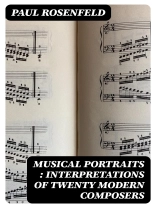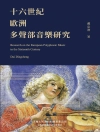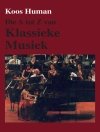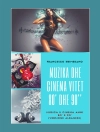In 'Musical Portraits: Interpretations of Twenty Modern Composers, ’ Paul Rosenfeld offers a profound exploration of contemporary music through detailed analyses of influential composers such as Stravinsky, Bartók, and Schoenberg. Utilizing an accessible yet erudite literary style, Rosenfeld adeptly intertwines biographical elements with musical criticism, creating compelling portraits that reveal the intricate connection between a composer’s life experiences and their artistic output. The work situates itself within the broad context of early 20th-century modernism, reflecting the era’s tumultuous shifts in artistic paradigms and cultural perspectives. Paul Rosenfeld, a prominent American musicologist and critic, was deeply immersed in early 20th-century music and literature, engaged with figures like Bernard Shaw and Henry Cowell. His academic background and rich interactions with avant-garde musicians undoubtedly shaped his insights, allowing him to bridge historical context with intimate details about the composers he studied. His experiences as a composer and critic inform his understanding of the aesthetic dialogues that influenced these modern musical giants. 'Musical Portraits’ is essential reading for anyone seeking a deeper understanding of modern music’s evolution and its composers’ intricacies. Rosenfeld’s insightful interpretations will resonate with both seasoned musicians and curious newcomers alike, offering a nuanced perspective that invites the reader to engage thoughtfully with each composer’s unique world.
O autorze
Paul Rosenfeld (1890–1946) was an eminent American critic known for his sophisticated interpretations of the arts, particularly music and literature. He grew up in an era that buzzed with the energy of modernism, and his critical essays offered a fresh, perceptive take on contemporary culture. Rosenfeld’s most enduring contribution to the field of music criticism is perhaps 'Musical Portraits: Interpretations of Twenty Modern Composers’ (1920), in which he examines the work and influence of composers such as Stravinsky, Schoenberg, and Debussy. His style blends keen analysis with expressive, almost poetic prose, encapsulating both the aesthetic essence and the intellectual rigor of the early 20th-century musical scene. Rosenfeld was not only a critic but also a cultural advocate, who through his writings sought to bridge the gap between the avant-garde and the general public. Though his work was primarily centered on music, Rosenfeld’s acumen extended to literature and visual arts, making his commentary an interdisciplinary mosaic reflective of the modernist spirit. His assemblage of critical essays stands as a testament to the vibrant artistic milieu of his time and remains an influential resource for understanding the evolution of modern music and its creators.












